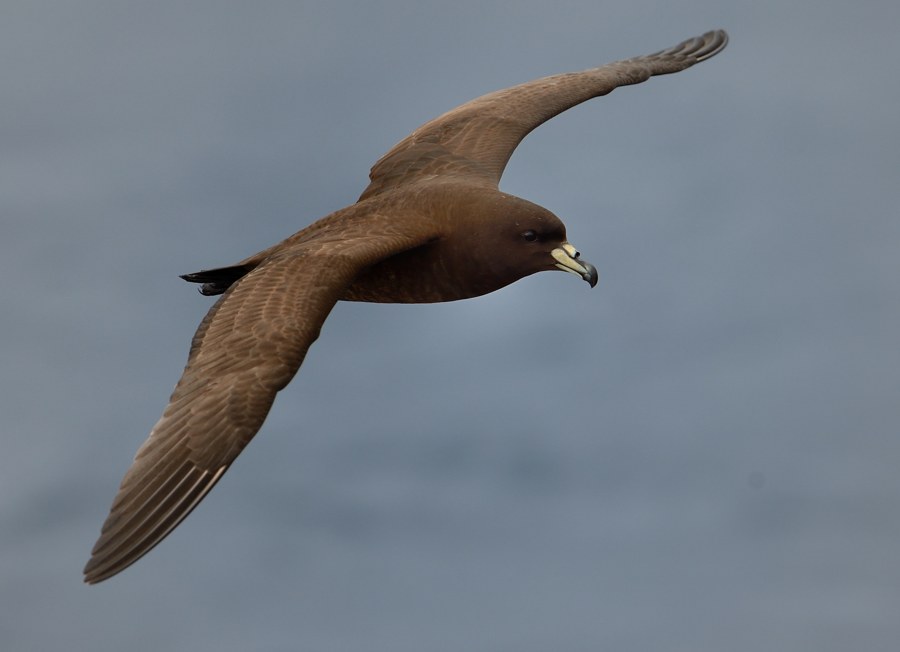
At risk to longliners: a Vulnerable Black Petrel Procellaria parkinsoni at sea in New Zealand waters, photograph by Kirk Zufelt
The Conservation Services Programme of New Zealand’s Department of Conservation monitors the impact of commercial fishing on protected species, studies species populations and looks at ways to mitigate bycatch. For the last, it provides online information for fishers that sets out mitigation measures, as well as identification and handling guides for marine species, including threatened seabirds. Four separate downloadable documents give information on mitigation measures for fishing vessel crew involved in longline, trawl, net and recreational fisheries. They contain short videos describing the mitigation measures and their deployment, including bird-scaring lines, bafflers and hook shielding. Light (at night) and discard management are also covered.
Bird-scaring lines explained for New Zealand longliners
Individual identification guides (downloadable as PDFs) cover seabirds, marine mammals, fishes and reptiles, and corals. The seabird guide covers 26 procellariiform species – 17 which are ACAP listed - that commonly occur in New Zealand territorial and EEZ waters, each with photographs and a summary text covering description, range, breeding, diet and threats. The seabird guide is available in seven other languages commonly spoken by fishers from Europe and Asia. The resource package is completed with a guide – in six languages - for fishers to access information on best-practice handling and treatment of seabirds and other animal groups that may come aboard fishing vessels.
With thanks to Igor Debski, Department of Conservation.
John Cooper, ACAP Information Officer 01 October 2020

 English
English  Français
Français  Español
Español